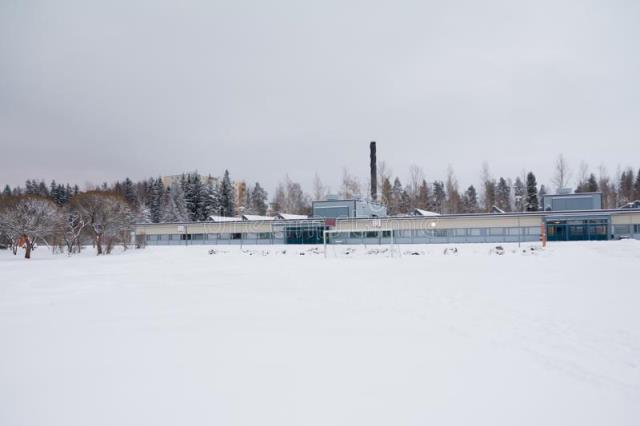 |
| Dear Friends and neighbors, We’ve had a busy week as all legislators have been hard at work, whether through zoom or in person, meeting with folks, discussing legislation, and working on the budget. There are two specific issues I want to call attention to that happened this week: Public Safety funding, and keeping schools open. Today, during a press conference we previewed a bill that would hold cities accountable to pay their mutual aid agreements and prevent Governor Walz from diverting funds away from education and healthcare to cover cities’ public safety costs that defund the police. There are consequences to taking actions to defund the police. It doesn’t matter if you are a small town, a growing city, or a developed urban center: public safety is a priority you cannot ignore. While the governor wants to set up a separate fund to bailout Minneapolis’s City Council from their poor budget decisions, Senate Republicans are holding the line and encouraging them to reconsider their priorities. However, we still want to encourage mutual aid to keep Minnesotans safe. This bill will restore confidence to neighboring cities by ensuring that they are reimbursed when they step up to protect their neighbors with no additional cost to the taxpayers. The bill will be authored by Senator Bill Weber (R-Luverne), Chair of the Subcommittee on Property Taxes. It allows cities that provided mutual aid but haven’t been reimbursed for it yet to apply to have their Local Government Aid (LGA) adjusted to match the amount owed. The funds would be provided by lowering the LGA from the city that owes the mutual aid payment. “Local Government Aid is a tool we already have funds for. Part of the $4.5 billion in new spending in Governor’s Walz’s proposed budget is this special fund to protect Minneapolis,” Senator Bill Weber explained. “Respectfully, we have to balance our state budget, and Minneapolis has the money for public safety. If they aren’t paying their bills or need more mutual aid than they can afford after defunding their own police by $8 million, we’re not going to ask taxpayers to foot that bill.” Weber continued, “This process is fair, it encourages law enforcement to be fully funded by cities, and it doesn’t take money away from the education or healthcare needs in the budget.” A major concern with the governor’s funding is that while crime is rising to record levels in Minneapolis, the city council is actively looking for more ways to reduce police funding. Additionally, the disparaging attitude about police from the council has led to more than 100 officers leaving the force. The perception is Minneapolis will get to rely on statewide funds to provide for their public safety needs while other areas rely on tax revenues for public safety. It is essentially a bailout for defunding their police budget. Yesterday, the governor said to put whatever safeguards on his fund that we want. Well, we want to be sure that no city council who knowingly votes to defund their police department is bailed out by the rest of the state. Using LGA to reimburse unpaid mutual aid agreements are the guardrails we want in place.You can watch the full press conference here: https://www.youtube.com/watch?v=I_sqTzW-JHw  Senate State Government Committee approves Sen. Nelson bill to restore local school district authority regarding reopening (St. Paul) — The Senate’s committee on State Government today approved Senator Carla Nelson’s (R-Rochester) bill to protect students’ right to a great education at all times. The legislation, Senate File 2, removes any governor’s authority to close schools or alter school schedules via emergency powers. Decisions about opening and closing will be left in the hands of individual school districts moving forward, where local officials have firsthand knowledge of their students’ needs. Senate State Government Committee approves Sen. Nelson bill to restore local school district authority regarding reopening (St. Paul) — The Senate’s committee on State Government today approved Senator Carla Nelson’s (R-Rochester) bill to protect students’ right to a great education at all times. The legislation, Senate File 2, removes any governor’s authority to close schools or alter school schedules via emergency powers. Decisions about opening and closing will be left in the hands of individual school districts moving forward, where local officials have firsthand knowledge of their students’ needs. “I am glad to have the support of the State Government Committee for this important bill,” said Sen. Nelson. “This is only about doing what is best for students. At this point in the pandemic, there is widespread agreement about the importance of getting students back into the classroom. The decision on how and when to reopen should not be made from the governor’s office. It should come from local school boards and community leaders. They are the ones who know what is best for their students. They should be given the option to decide how and when to open their schools.” The bill says the governor may not use peacetime emergency powers to issue any order or to authorize the commissioner of education to alter school schedules, curtail school activities, or order schools closed. Gov. Walz’s executive orders closing schools have been among his most questioned and controversial orders of the outbreak. There is mounting evidence, including research from the CDC, that schools pose minimal risk in spreading the coronavirus. A fall Reuters report that studied 191 countries also found no clear link between schools reopening and coronavirus surges. In addition, Axios looked at several studies and found schools are not Covid hotspots, and the Atlantic Magazine wrote that kids are not superspreaders and that it’s time to reopen schools. The New York Times reported on evidence that schools, especially elementary schools, are not “stoking community transmission.” There is also agreement about the impact distance learning is having on students: · The American Association of Pediatrics has said, “The AAP strongly advocates that all policy considerations for the coming school year should start with the goal of having students physically present in school. The importance of in-person learning is well-documented, and there is already evidence of the negative impacts on children because of school closures in the spring of 2020.” · UNICEF has warned of a ‘lost generation’ and found school closures are ineffective. “Even with the promise of a vaccine on the horizon, a new report by UNICEF, the United Nations agency for children, warned that “the future of an entire generation is at risk,” with the threat to children increasing. Studies cited in the report showed “no consistent association between school reopening status and COVID-19 infection rates. · The Sahan Journal found the pandemic has had a “devastating” impact on communities of color in St. Paul Public Schools. · CBS reported on a U.K. education watchdog that found kids have seriously regressed due to Covid-19. Thank you for taking the time to read this brief news update. Thank you also to all the folks who have reached out with encouragement, questions or concerns about State or legislative issues. I’m always happy to help. Best,  Paul GazelkaMinnesota State Senate | District 09Call my office: 651-296-4875 Paul GazelkaMinnesota State Senate | District 09Call my office: 651-296-4875Email me: sen.paul.gazelka@senate.mn |
